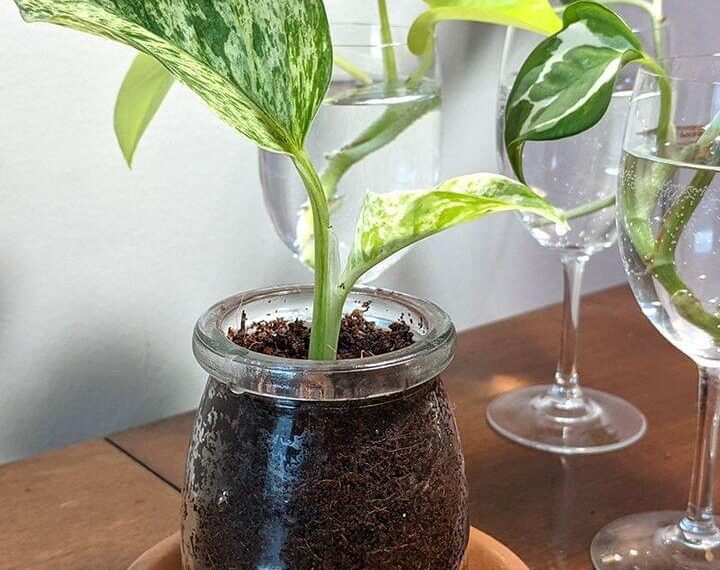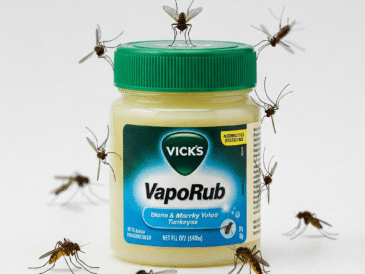Propagating in Soil
1. Materials Needed:
• Pot with drainage holes.
• Well-draining potting mix (optional: mix with perlite or peat moss for aeration).
• Sterile scissors or pruning shears.
• Optional: Rooting hormone.
2. Steps:
• Take a cutting with 2-4 nodes and remove the lower leaves.
• Dip the cut end of the stem in rooting hormone (optional).
• Plant the cutting directly into the soil, ensuring at least one node is buried.
• Water lightly to keep the soil moist but not soggy.
• Place the pot in bright, indirect sunlight.
• Maintain humidity by covering the pot with a clear plastic bag, leaving small openings for airflow (optional).
• Roots should develop in about 4-6 weeks. New leaf growth is a sign of successful propagation.
3. Pros:
• Plants propagated in soil often develop stronger, more robust root systems.
• No need to transition from water to soil, reducing transplant shock.
4. Cons:
• Roots aren’t visible, making it harder to monitor progress.
• Requires a bit more patience and attention to soil moisture.Which Method is Best?
• Choose Water: If you enjoy observing root growth or plan to keep your Pothos as a hydroponic plant.
• Choose Soil: If you want a sturdier plant from the start or plan to keep the plant in soil long-term.Both methods work well, so pick the one that suits your preferences and resources!
Pages: 1 2




